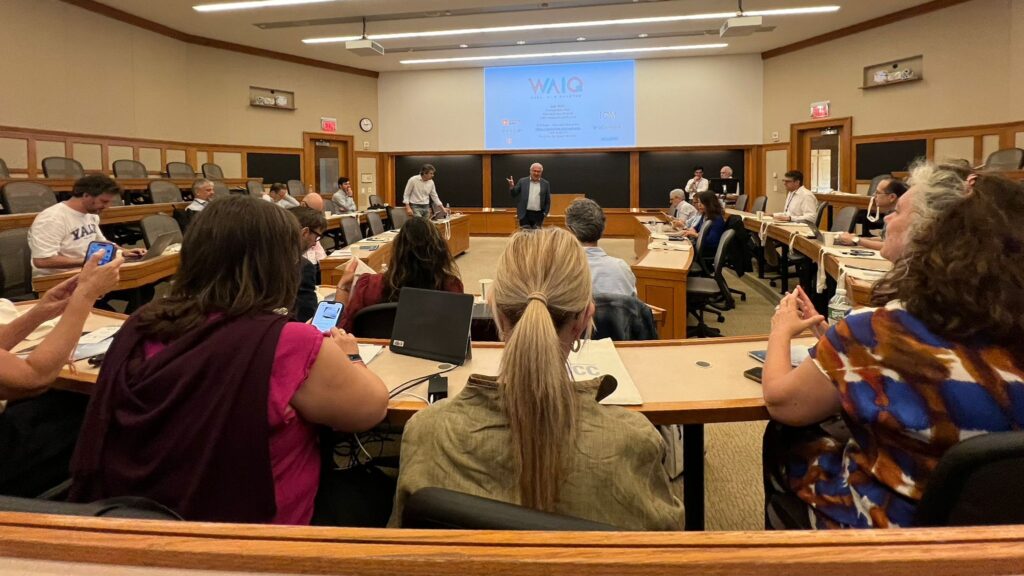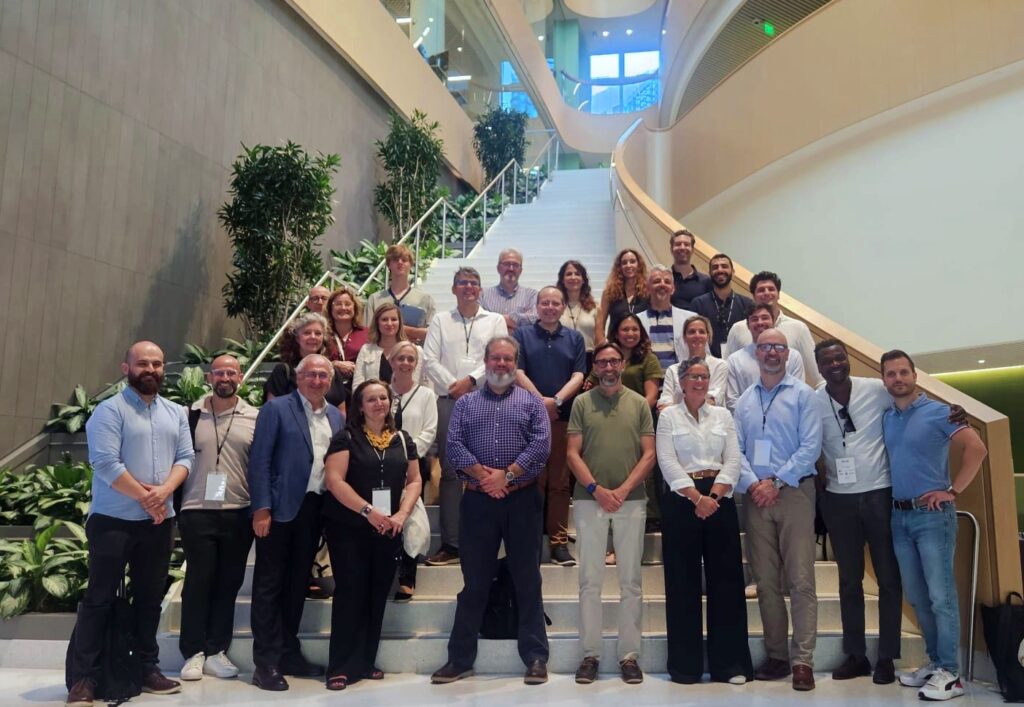From a specialised course to a global think tank with a Spanish spirit. The third edition of the forum “Web3, AI and Quantum Computing (WAIQ): Challenges and Opportunities for Innovators, Legal Professionals and Other Curious Minds”, held this week at Harvard Law School and the Harvard Innovation Lab in Boston, marked a turning point in its evolution. What began as a high-level training course promoted by the Real Colegio Complutense at Harvard (RCC) and PONS Business School has been established as a space for strategic reflection on the impact of technology on our society, with innovation and legal insight as its main pillars.
In this edition, PONS IP has strengthened its role as a sponsor through one of the main drivers of this initiative thanks to the leadership of its Strategic Advisor, Luis Ignacio Vicente, and the active participation of Eric Maciá and Violeta Arnaiz from the Technology Consulting Area. “What began as an intensive course is turning into a truly global think tank focused on deep tech, where the Spanish perspective provides a differentiating value”, Vicente remarked.
A global ecosystem with a Spanish flair
During three intense working sessions, WAIQ brought together more than 30 leaders from the business, legal, scientific, and government sectors of three continents, all with a common link: Spanish-speaking talent as a driver of innovation. Representatives from companies such as Telefónica, Gestamp, ArcelorMittal, IAG, QCentroid, Moeve, Eurecat, ITA, Walmart, Bluzec, law firms, and executives from global companies such as IBM, IQM, and Google participated in the sessions, along with leading scholars from Harvard, MIT, and Columbia.
At the institutional level, the presence of a representative from the Ministry of Science and Innovation is worth noting, reinforcing public commitment to the promotion and ethical regulation of emerging technologies.
Advanced training, real impact
Held in Boston, the training programme has evolved into an environment of academic and professional dialogue, where real-world challenges, opportunities for implementation, and the ethical and legal implications of emerging technologies are analysed. It has a unique format, both in Spain and internationally, given its ability to generate applied knowledge and anticipate complex regulatory scenarios.
The programme addressed the greatest challenges of Artificial Intelligence, with sessions dedicated to its future applications, legal implications, the problem of algorithmic bias in legal decision-making, innovation in legal tech, and the state of regulation in the United States, China and Europe. The social impact of generative AI and the role that ethical and responsible governance of these systems should play were also discussed.
In the section on Web3, its technological pillars, such as tokenisation and decentralised digital identity, were explored and practical cases were analysed, along with the legal challenges posed by emerging artifacts such as NFTs, DAOs, and smart contracts. The session on quantum computing opened a window into the future of automation and data processing, with presentations by leading international experts and some led by Spanish companies such as Qcentroid and Luxquanta.
On the third day, coordinated by Ricardo Vidal of IAG in collaboration with the Harvard Innovation Lab, some of the most promising entrepreneurial initiatives that are currently incubated and accelerated there were analysed and we identified potential best practices to implement in our daily activities.
Industrial property as a backbone
In all sessions, regulation and, specifically, the management of intellectual property were considered to be critical tools for transforming knowledge into economic value, protecting strategic assets, promoting the technological sovereignty of companies and countries, and fostering reliable innovation environments.
From PONS IP, in addition to Luis Ignacio Vicente, Eric Maciá, an information technology and trade secrets specialist at the consulting firm, and Violeta Arnaiz, Director of Intellectual Property, AI, and Software, actively participated, offering a legal perspective on the challenges of technological development.
The conclusions drawn from these high-level discussions indicate the need to take advantage of opportunities offered by these technologies, moving toward coherent regulatory frameworks, strengthening the protection of intangible assets, and promoting ethical, sustainable, and globally connected innovation.





